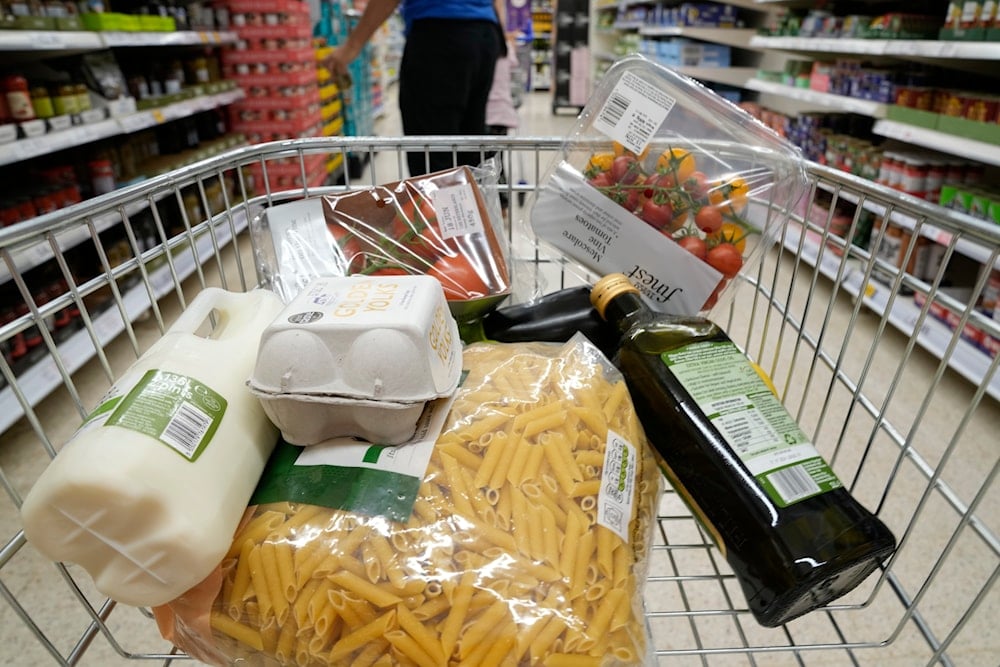2 million UK households in poverty, unplugging fridges to save money
Four out of five households on universal credit in the UK are going without food, turning off heat, not replacing worn-out clothing, and resorting to “desperate measures”.
-

A basket of groceries a trolly at a supermarket in London, Saturday, June 10, 2023. (AP)
According to the Joseph Rowntree Foundation (JRF) charity in the UK, around 2 million households have reached a point where they are turning their fridges off to save money amid a “frightening” level of hardship for the first time since May.
The JRF stated that four out of five households on universal credit were going without food, turning off heat, not replacing worn-out clothing, and resorting to “desperate measures”.
Its latest cost of living crisis tracker survey revealed that back in October, around 2.8 million UK low-income households accumulated debt to pay for food, while a third sold belongings for cash, and one in six used community “warm rooms”.
The JRF noted that although the government allocated over £12 billion for the cost of living support, 7.3 million households have still gone without food and other essentials in the last six months.
It is reported that ministers could freeze working-age benefits from next April, which would help procure billions for the Treasury, but leave about 9 million households with a loss of an estimated average of £460.
Read more: Young Brits seek opportunities elsewhere: Survey
Balancing the equation
Peter Matejic, chief analyst at the JRF, said, “Millions of families unplugging their fridges and freezers is the latest chapter in a long-running story of hardship. People risk becoming sick from eating spoiled food and going without healthy, fresh food. This risks lasting harm to the health of millions,” adding: “The picture isn’t getting better for low income families even as inflation starts to come down. Too many are taking out loans to pay for food, selling their belongings and using warm banks to try and get by.”
He noted how “unconscionable” it is “that the government is reportedly considering cutting struggling families’ benefits to fund tax cuts. In the upcoming autumn, statement benefits must be increased in line with inflation, and local housing allowance must be unfrozen to support private renters with their housing costs.”
Charities believe that the fall in inflation still does close to nothing to improve living standards for the poor unless benefits are increased to balance food and energy prices and private sector rents.
A Department for Work and Pensions spokesperson said, “The cost of living payments have provided a significant financial boost to millions of households – just one part of the record £94bn support package we have provided to help with the rising cost of bills.”
Read next: The UK is now a poor nation, poorer than the US: Report
“This includes a 10.1% rise to benefits earlier this year, and we’re investing £3.5bn to help thousands into jobs – the best way to secure their financial security in the long term... Ultimately, the best way we can help families is to reduce inflation, and we’re sticking to our plan to halve it this year, taking the long-term decisions that will secure the country’s financial future.”
Back in August, it was found that lower-income households and those aged between 45 and 64 years old were found to be more likely to go without heating in winter, which prompted requests for the government to propose a discounted “social energy tariff” for those households.

 3 Min Read
3 Min Read








